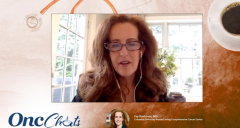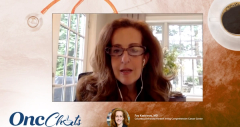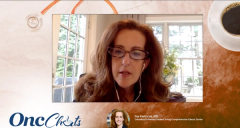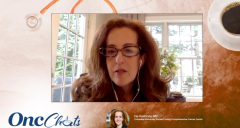
Understanding Lynch Syndrome and Associated Cancer Risk: Treatment Advances
In this fifth episode of OncChats: Understanding Lynch Syndrome and Cancer Risk, Fay Kastrinos, MD, MPH, highlights progress made with regard to colon cancer treatment and Lynch syndrome, including leveraging immunotherapy.
Episodes in this series

In this fifth episode of OncChats: Understanding Lynch Syndrome and Cancer Risk, Fay Kastrinos, MD, MPH, Columbia University Herbert Irving Comprehensive Cancer Center, highlights progress made with regard to colon cancer treatment and Lynch syndrome, including leveraging immunotherapy.
With respect to colon cancer treatment and Lynch syndrome, improved outcomes have been appreciated for many years. In recent years, [the progress made] has been more notable with the use of immunotherapy. Tumors that develop by the MSI pathway have more somatic mutations than tumors that develop through other pathways; this could imply that mismatch repair [MMR]–deficient tumors may have more potential neoantigens and be more responsive to immune system manipulation than mismatch repair–proficient tumors.
In a recent study [published in 2022 in] the New England Journal of Medicine, a complete clinical response was noted in 12 patients with locally advanced, MMR-deficient rectal cancer after 6 months of neoadjuvant therapy with PD-1 blockade. Mutational analysis of the tumor specimens by sequencing confirmed MSI. [In] patients for whom testing was performed, tumors also revealed a high mutational burden.
Germline analysis, interestingly enough, identified pathogenic alterations in 57% of all patients and these individuals had Lynch syndrome; MSH2 was most common. Notably, however, none of these patients with Lynch syndrome had a known family history of the condition and may have been missed without germline testing.
Check back next Wednesday for the final episode in this series.









































